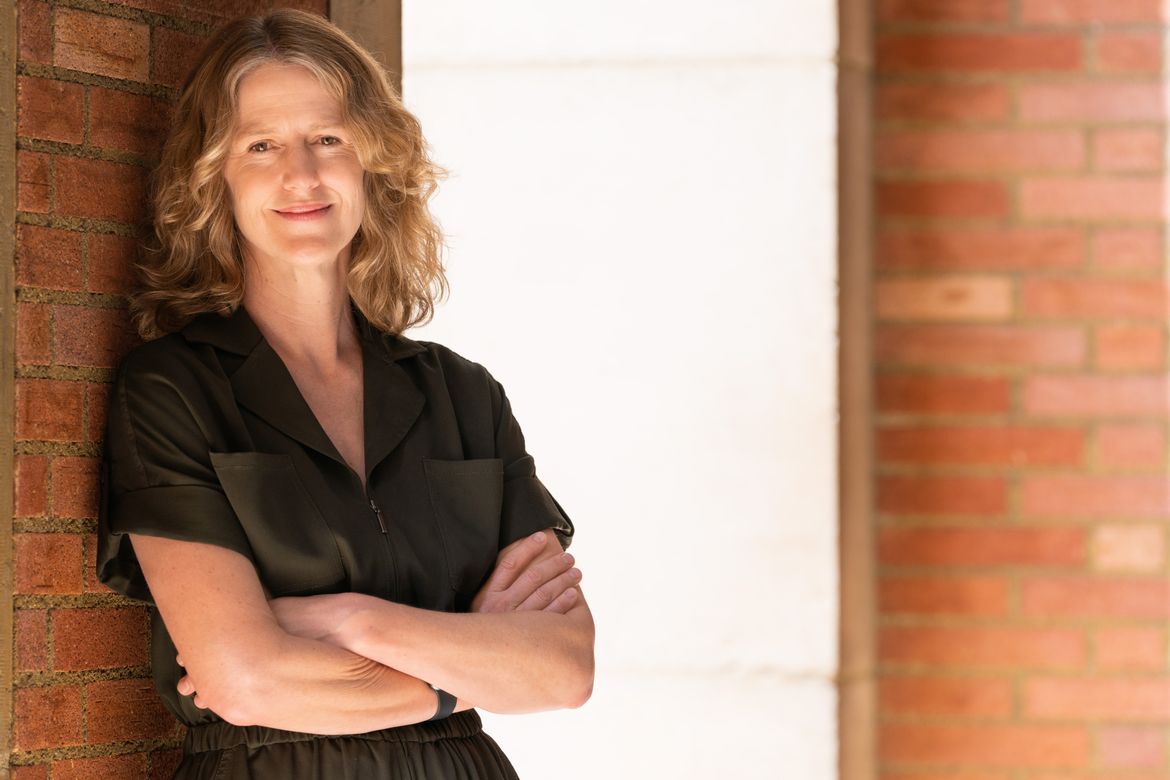London-born Kate Mackintosh grew up in a family with a steady stream of international visitors, providing her with a global view of the world. After studying history and law, she worked for the United Nations High Commissioner for Human Rights in Rwanda and then for Doctors Without Borders, which helped her develop her passionate yet pragmatic approach to human rights. In 2017, she became the inaugural director of the Promise Institute for Human Rights at the UCLA School of Law. Now, she is looking forward to the evolving challenge of defining and prosecuting new war crimes.
How did you become interested in law on a global scale?
Both my parents, an artist and a conference interpreter, had lived in Paris. We had visitors from all over the world living in our spare room through my childhood: Brazilian dancers, Northern Ireland political activists, all talking all the time. My mum went every year to Cameroon, and the daughter of that family she visited came to live with us, and we spoke French. My global outlook was created there. I knew I wanted to work on that scale, but I needed a lucky break to make it happen.
What was the break?
I studied history before law, and I was working at a high street law firm in Camden Town [northwest London] when I saw an advert from Amnesty International seeking a French-speaking lawyer. I forgot about it, not knowing that my CV was being circulated. Later, I got a call out of the blue from the U.N. High Commissioner for Human Rights in Geneva, which had just been created, asking whether I could be ready to go to Rwanda in two weeks. And I was. This was in the wake of the 1994 genocide, when up to a million Tutsi were slaughtered and 500,000 women raped by the majority Hutu. The world did not intervene, but international institutions helped pick up the pieces.
What were your first impressions?
I arrived just over a year after the genocide. My first impression was how incongruously beautiful the country was. Much of the physical evidence of the genocide was hidden under the lush tropical landscape, and one of the principal challenges was to grasp the scale and horror of what had taken place just one year earlier. Not everything was hidden: Soon after arriving we visited some of the early memorial sites — scenes of massacres that had been left as they were, as a testament to what had happened. It was so recent that the smell of dead bodies lingered. One very tangible effect was the thousands of people accused of genocide crammed into detention centers. Part of my work was to assist the authorities to deal with these people, in a situation where the judges had been killed and the legal system decimated.
Did you feel safe?
We rented a house in Ruhengeri [near the Uganda/Congo border] with three colleagues, and we had very little security – one guard, really a created job opportunity. Shortly after I left, a British colleague and four others were ambushed and killed in a convoy of U.N.-marked vehicles. The mission pulled out. Thinking back, our security may have been a misjudgment.
When you returned to Europe, 50 years after Nazis were tried in Nuremberg, the drive to create a true permanent court of human rights started happening. Why in the 1990s?
The end of the Cold War changed everything. In 1993, the briefly united Security Council established the International Criminal Tribunal for the former Yugoslavia, and the following year its sister Rwanda tribunal. These courts breathed life into this body of law, and I thought, “I want to be part of that.” I got the position as the legal assistant to the president of the court.
I joined in January 1998. It was fighting for hearts and minds and budget every step of the way — no one really believed that this international court would work. We were writing international law and setting precedents as the post–World War II rules about fighting war had never been tested in an international court. For the first time since Nuremberg, we were asking: What is the international test of criminality against humanity? We had to think that through. It was spectacular work.
What does UCLA’s Promise Institute offer?
When the idea of the Institute came up — to foster international collaborations to address human rights crises through the law — I loved its optimism and ambition. It was the room for creativity and time for deep thinking that you never have in the field, and the students bringing in a contemporary awareness. You can charge them up and release them to change the world over the next 40 years. I was also thinking about what else you need to make things happen: storytelling, innovation. And that is Los Angeles.
The Institute is tackling “ecocide,” with destructive behavior against the environment punishable in an international court of law. That seems ambitious.
We are at a critical moment in the development of international law. You can sense the ground is shifting. There is real interest from academia, the business community and some states, as well as civil society and the general population. We have defined ecocide as reckless, wanton or unlawful acts of environmental destruction, completely counter to sustainable development principles, that create severe and widespread or long-term damage to the environment.
Climate change is hard to address through criminal law, but there is precedent for tackling systemic crimes. We are looking at people with significant responsibility, as we did in the genocide investigations, not just at people driving their cars.
The goal is to not throw people into prison, but to prompt decision-makers to think again, about their reputation and the prospect of being accused of criminality, to change the risk calculation — and so the harmful decisions — themselves. Deterrence before the act is preferable to punishment after the harm.




